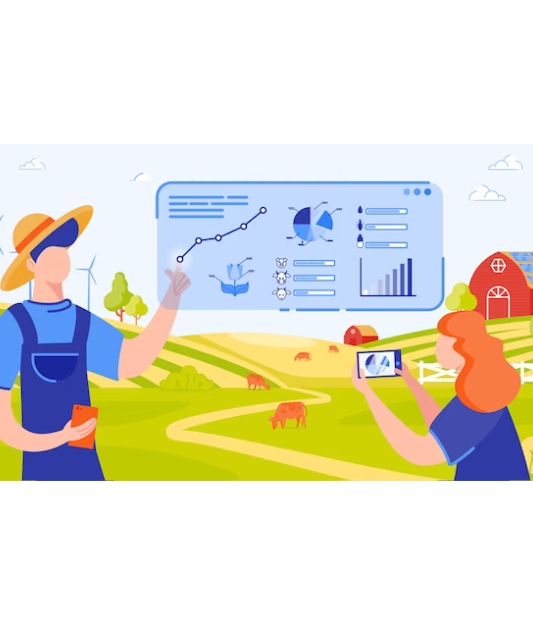Agro
Agro, short for agriculture, encompasses the cultivation of crops, livestock farming, and other agricultural practices. It involves activities such as planting, harvesting, irrigation, and animal husbandry, aimed at producing food, fiber, and other agricultural products. Agriculture plays a vital role in feeding the world’s population and supporting rural economies.

What problem facing tracking salesperson
Tracking sales in the agriculture (Agro) industry presents several challenges due to the unique characteristics of the industry and the nature of agricultural products. Here are some of the key problems faced in tracking sales in the Agro-industry:
Seasonal Variability
Agricultural sales are often subject to seasonal fluctuations due to factors such as weather conditions, planting and harvesting cycles, and market demand. Tracking sales accurately throughout the year can be challenging due to these seasonal variations.
Long Sales Cycles
The sales cycle in the Agro-industry can be lengthy, spanning from the initial purchase of seeds or livestock to the final sale of agricultural products. Tracking sales activities and progress over extended periods requires patience and persistence.
Diverse Product Range
The Agro-industry encompasses a wide range of products, including crops, livestock, fertilizers, pesticides, machinery, and agricultural services. Managing and tracking sales across diverse product categories adds complexity to the tracking process.
Supply Chain Complexity
Agricultural products often pass through multiple stages of the supply chain, from production to distribution to retail. Tracking sales involves coordinating with various stakeholders, including farmers, distributors, retailers, and end consumers, which can be challenging due to the complexity of the supply chain.
Geographic Dispersion
Agricultural sales teams may operate across wide geographic areas, covering rural regions, farmlands, and agricultural markets. Tracking sales personnel and activities in remote or rural areas can be difficult due to limited infrastructure and communication networks.
Market Volatility
Agricultural markets are subject to volatility due to factors such as changes in commodity prices, government policies, and global trade dynamics. Tracking sales performance amidst market fluctuations requires agility and adaptability in sales strategies.
Regulatory Compliance
The Agro-industry is heavily regulated, with laws and regulations governing aspects such as pesticide use, food safety standards, and environmental conservation. Ensuring compliance with regulatory requirements while tracking sales activities adds another layer of complexity to the process.
Customer Relationship Management
Building and maintaining relationships with farmers, agricultural cooperatives, and other stakeholders is essential for sales success in the Agro industry. However, tracking interactions and managing relationships with a diverse customer base can be challenging.
How to solve those problems
Seasonal Forecasting and Planning
Implement features in the Team OS that allow for seasonal forecasting and planning, helping sales teams anticipate demand fluctuations and adjust sales strategies accordingly. This includes tools for tracking historical sales data, analyzing market trends, and forecasting future sales.
CRM Integration for Customer Relationship Management
Integrate customer relationship management (CRM) functionality into the Team OS to facilitate tracking of interactions with farmers, agricultural cooperatives, and other stakeholders. This includes features for managing customer profiles, tracking communication history, and scheduling follow-up activities.
Supply Chain Visibility
Provide real-time visibility into the supply chain through the Team OS, allowing sales teams to track the movement of agricultural products from production to distribution to retail. This includes features for tracking inventory levels, monitoring shipments, and managing logistics.
Mobile Accessibility
Ensure that the Team OS is accessible via mobile devices, allowing sales teams to track sales activities, access customer information, and communicate with stakeholders while on the go. Mobile accessibility improves flexibility and productivity for sales teams working in remote or rural areas.
Data Analytics for Market Insights
Utilize data analytics capabilities within the Team OS to provide actionable insights into market trends, customer preferences, and sales performance. This includes features for analyzing sales data, identifying growth opportunities, and optimizing sales strategies.
Compliance Management Tools
Integrate compliance management tools into the Team OS to ensure adherence to regulatory requirements and industry standards. This includes features for tracking regulatory changes, managing documentation, and ensuring compliance with food safety and environmental regulations.
Collaboration and Communication Tools
Incorporate collaboration and communication features into the Team OS to facilitate teamwork and coordination among sales teams, distributors, retailers, and other stakeholders. This includes features for sharing documents, scheduling meetings, and conducting virtual collaboration sessions.
Training and Support Resources
Provide comprehensive training and support resources within the Team OS to ensure that sales teams are equipped with the knowledge and skills needed to navigate the complexities of agricultural sales. This includes access to training materials, online courses, and on-demand support from experts.
